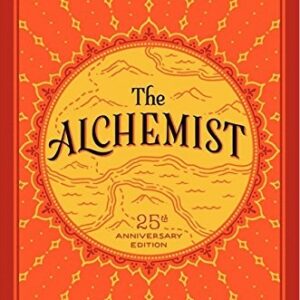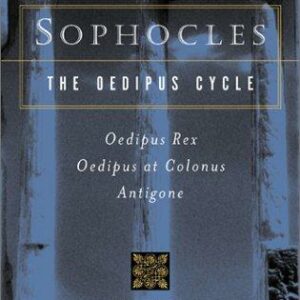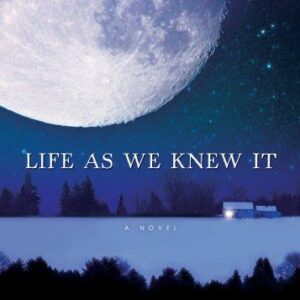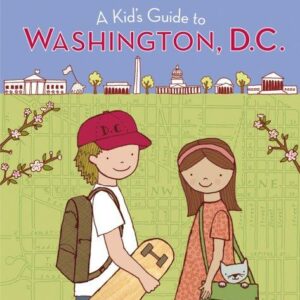Female Abolitionists
$8.00
| Title | Range | Discount |
|---|---|---|
| Trade Discount | 5 + | 25% |
- Description
- Additional information
Description
A Dover Original, this collection of essays, letters, poems, and speeches by the bold women who joined the abolitionist movement of the nineteenth century will educate and inspire all who are interested in this era of American history. The collection includes the work of 26 remarkable women whose efforts, at great risk to their own safety, became instrumental in fighting slavery, including Phillis Wheatley, Sojourner Truth, Mary Prince, Sarah Mapps Douglass, Elizabeth Cady Stanton, Lydia Maria Child, Harriet Tubman, Angelina and Sarah Grimké, and more.
This original collection of essays, letters, poems, and speeches by 26 of the bold women who joined the abolitionist movement of the nineteenth century features the work of Phillis Wheatley, Sojourner Truth, Mary Prince, Harriet Tubman, and more.
Phillis Wheatley: Letter to Reverend Samson Occum (1774)
Elizabeth Heyrick: Immediate, Not Gradual Abolition (1824)
Sarah Louisa Forten: The Grave of the Slave (1831)
Sarah Louisa Forten: The Slave-Girl’s Address to Her Mother (1831)
Mary Prince: The History of Mary Prince, A West Indian Slave (Excerpts) (1831)
Sarah Mapps Douglass: Held in Bondage (June 1832)
Maria W. Stewart: Lecture Delivered at Franklin Hall, Boston (September 21, 1832)
Lydia Maria Child: An Appeal in Favor of That Class of Americans Called Africans (Preface and Chapter 1) (1833)
Elizabeth Margaret Chandler: Letters to Isabel (1836)
Angelina E. Grimké: Appeal to Christian Women of the South (1836)
Sarah M. Grimké: An Epistle to the Clergy of the Southern States (December 1836)
Angelina E. Grimké: Speech at Pennsylvania Hall (May 16, 1838)
Abby Kelley: What Is Real Anti-Slavery Work? (1839)
Eliza Lee Cabot Follen: Women’s Work (1842)
Harriet Tubman: Liberty or Death (c. 1845)
Lucretia Mott: The Law of Progress (May 9, 1848)
William and Ellen Craft: Running a Thousand Miles for Freedom or, The Escape of William and Ellen Craft from Slavery (Excerpts) (December 1848)
Lucy Stanton: A Plea for the Oppressed (August 27, 1850)
Sojourner Truth: Speech (“Ain’t I a Woman?”) (May 29, 1851)
Mary Ann Shadd: Notes of Canada West (Introductory and Concluding Remarks) (1852)
Harriet Beecher Stowe: An Appeal to the Women of the Free States of America on the Present Crisis in Our Country (February 23, 1854)
Charlotte Forten: Journal of Charlotte Forten: Free Woman of Color (Excerpts) (May–June 1854)
Frances Ellen Watkins Harper: The Slave Mother (1854)
Frances Ellen Watkins Harper: The Slave Auction (1854)
Maria Weston Chapman: “How Can I Help to Abolish Slavery?” or, Counsels to the Newly Converted (1855)
Susan C. Cabot: What Have We, As Individuals, to Do with Slavery? (May 9, 1855)
Harriet A. Jacobs: Incidents in the Life of a Slave Girl, Written by Herself (Excerpts) (1859)
Lydia Maria Child et al.: Correspondence Regarding the Prisoner John Brown (October–December 1859)
Elizabeth Cady Stanton: Speech to the Anniversary of the American Anti-Slavery Society (May 8, 1860)
Sarah Parker Remond: The Negroes in the United States of America (January 1, 1862)
Susan B. Anthony: Speech to the American Anti-Slavery Society (December 4, 1863)
Selected Bibliography
Elizabeth Heyrick: Immediate, Not Gradual Abolition (1824)
Sarah Louisa Forten: The Grave of the Slave (1831)
Sarah Louisa Forten: The Slave-Girl’s Address to Her Mother (1831)
Mary Prince: The History of Mary Prince, A West Indian Slave (Excerpts) (1831)
Sarah Mapps Douglass: Held in Bondage (June 1832)
Maria W. Stewart: Lecture Delivered at Franklin Hall, Boston (September 21, 1832)
Lydia Maria Child: An Appeal in Favor of That Class of Americans Called Africans (Preface and Chapter 1) (1833)
Elizabeth Margaret Chandler: Letters to Isabel (1836)
Angelina E. Grimké: Appeal to Christian Women of the South (1836)
Sarah M. Grimké: An Epistle to the Clergy of the Southern States (December 1836)
Angelina E. Grimké: Speech at Pennsylvania Hall (May 16, 1838)
Abby Kelley: What Is Real Anti-Slavery Work? (1839)
Eliza Lee Cabot Follen: Women’s Work (1842)
Harriet Tubman: Liberty or Death (c. 1845)
Lucretia Mott: The Law of Progress (May 9, 1848)
William and Ellen Craft: Running a Thousand Miles for Freedom or, The Escape of William and Ellen Craft from Slavery (Excerpts) (December 1848)
Lucy Stanton: A Plea for the Oppressed (August 27, 1850)
Sojourner Truth: Speech (“Ain’t I a Woman?”) (May 29, 1851)
Mary Ann Shadd: Notes of Canada West (Introductory and Concluding Remarks) (1852)
Harriet Beecher Stowe: An Appeal to the Women of the Free States of America on the Present Crisis in Our Country (February 23, 1854)
Charlotte Forten: Journal of Charlotte Forten: Free Woman of Color (Excerpts) (May–June 1854)
Frances Ellen Watkins Harper: The Slave Mother (1854)
Frances Ellen Watkins Harper: The Slave Auction (1854)
Maria Weston Chapman: “How Can I Help to Abolish Slavery?” or, Counsels to the Newly Converted (1855)
Susan C. Cabot: What Have We, As Individuals, to Do with Slavery? (May 9, 1855)
Harriet A. Jacobs: Incidents in the Life of a Slave Girl, Written by Herself (Excerpts) (1859)
Lydia Maria Child et al.: Correspondence Regarding the Prisoner John Brown (October–December 1859)
Elizabeth Cady Stanton: Speech to the Anniversary of the American Anti-Slavery Society (May 8, 1860)
Sarah Parker Remond: The Negroes in the United States of America (January 1, 1862)
Susan B. Anthony: Speech to the American Anti-Slavery Society (December 4, 1863)
Selected Bibliography
Courageous women stepped forward in solidarity in the nineteenth century, advocating for the abolition of slavery and for women's rights. These women, undaunted by opposing views, fueled the rise of female abolitionists. Although women did not have the right to vote, they knew how to petition, publish, sermonize, and lecture. Black and white women alike raised money and awareness, and wrote and spoke passionately against slavery.
Ellen Craft, Sarah Mapps Douglass, Charlotte Forten, Sarah Louisa Forten, Frances Ellen Watkins Harper, Mary Prince, Mary Ann Shadd, Maria W. Stewart, and Sojourner Truth are just a few of the Black women who risked their lives to fight for freedom for all. Leading white abolitionists include Susan B. Anthony, Elizabeth Margaret Chandler, Lydia Maria Child, Angelina E. Grimké, Sarah M. Grimké, Elizabeth Heyrick, Lucretia Mott, and Elizabeth Cady Stanton. This collection of essays, speeches, and poems by a bold group of women will educate and inspire all who are interested in this era of American history.
Ellen Craft, Sarah Mapps Douglass, Charlotte Forten, Sarah Louisa Forten, Frances Ellen Watkins Harper, Mary Prince, Mary Ann Shadd, Maria W. Stewart, and Sojourner Truth are just a few of the Black women who risked their lives to fight for freedom for all. Leading white abolitionists include Susan B. Anthony, Elizabeth Margaret Chandler, Lydia Maria Child, Angelina E. Grimké, Sarah M. Grimké, Elizabeth Heyrick, Lucretia Mott, and Elizabeth Cady Stanton. This collection of essays, speeches, and poems by a bold group of women will educate and inspire all who are interested in this era of American history.
Additional information
| Weight | 1 oz |
|---|---|
| Dimensions | 1 × 5 × 8 in |










